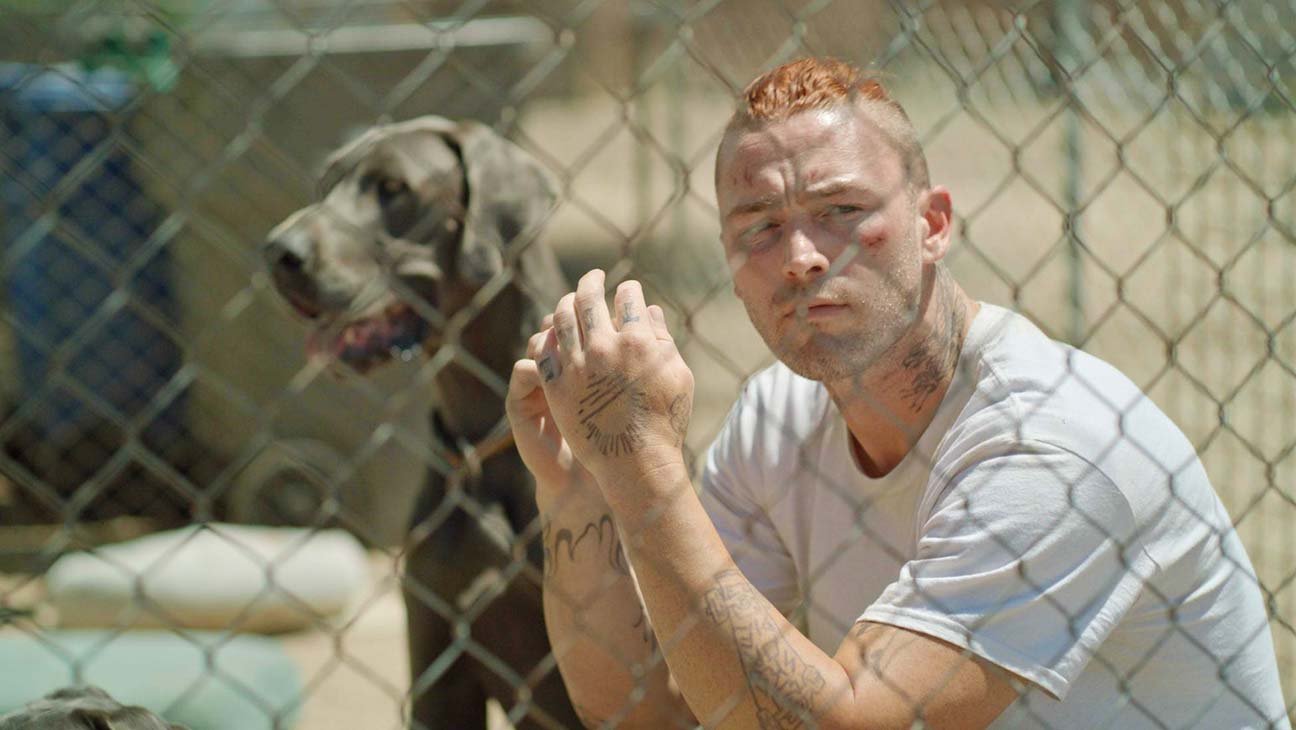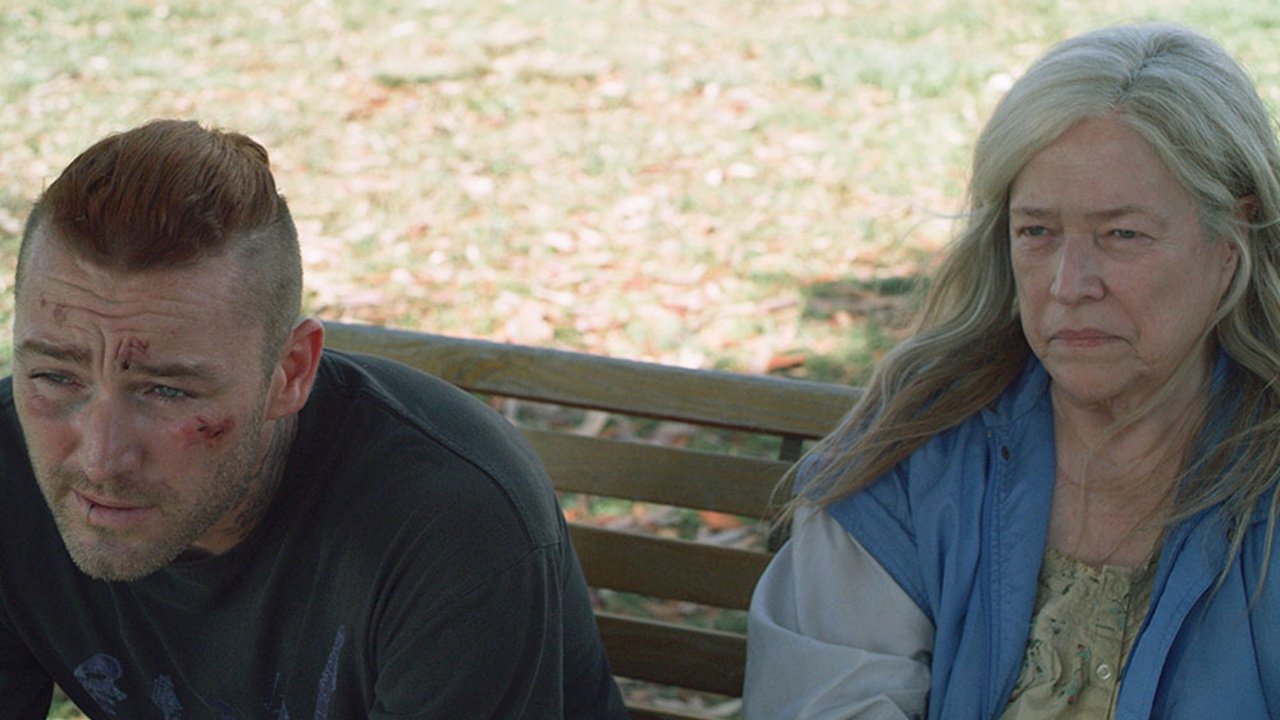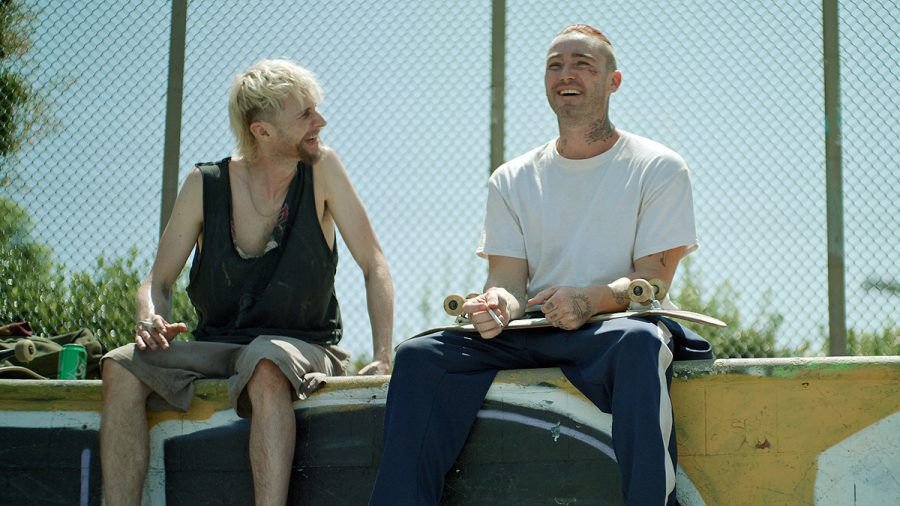'Home' Director Franka Potente on Writing Vulnerable Male Characters and Creating Empathetic Stories
Jake McLaughlin in “Home.”
‘Home’ is the directorial debut from veteran actor Franka Potente who also helmed the script. Starring Jake McLaughlin as Marvin, it follows the story of a man who returns home after spending most of his adolescence behind bars following a crime he committed. In addition to examining the complicated relationship between him and his mother (played by the inimitable Kathy Bates), the film explores themes of family, redemption, and small-town living.
Potente first got the idea for the film from an article she saw in The New York Times over a decade ago. “They had done a photo spread, probably 15 years ago or so, about redheads with tattoos,” she begins. “And what I loved about that picture was that he had this porcelain skin and this bright red hair and he had all these tattoos on his neck . . . it was kind of the contradiction between somebody really vulnerable and brutal . . . and I had that image, that frame, for many years.” She had previous writing experience, having already been a published writer in Germany, but that image stuck with her and made her think of her small-town roots. “[That] quickly became the dynamic and became this guy with red hair so that everyone could recognize him returning into small town, which is, you know, my history . . . [that] he had done something so awful, so many years ago, that people would still remember. It all kind of came together, like it was youth versus someone who's really grown up.”
Jake McLaughlin and Kathy Bates in “Home.”
Throughout the film, only minimal clues surrounding the details of Marvin’s crime are revealed to the audience. When asked if this was a conscious choice during the writing process to allow the viewer to create their own narrative, Potente said, “The benefits of withholding are that it makes space and room for everyone to imagine things, and I think we're giving just enough information that we kind of get an idea . . . facts, so to speak, are very concrete pieces of information and sometimes override the progression of the emotional story [which] is very fragile. So, when you give people kind of a reason—this is why he did it—then people start to kind of estimate, ‘Huh, oh, okay. Well, if that's the case, then do I like this guy? Do I want to follow his story?’”
“I tried to tell a story that at the end of the day is emphatic. That has to be the baseline of this. Otherwise, why tell it?”
When writing the story, Potente wanted to break the mold of the traditional stereotype for male characters like this. Instead of writing a character that was hardened, angry, and rough-around-the-edges, she wanted to create someone who was honest, sensitive, and remorseful, and casting was a crucial element to this: “What I liked about Jake, amongst so many things, is that he is very manly. But at the same time, he could have the ability to be really vulnerable,” she says. “He's trying to really allow himself to feel things, and he's actually open to hear what people have to say to him . . . that was something that I was interested in, as well in that context, manliness and vulnerability, which to me is like a modern male character in this predicament.” When she met McLaughlin, she had only ever seen a picture of him and had yet to watch any of his performances from previous projects. But she learned of his background and upbringing, which was similar to what she had written for Marvin and connected to his own emotional vulnerability. “He had emotions, like so many of them available waiting right under his skin, so I just very gently needed to guide him and he would just be there. It was so genuine and scarily sincere . . . I can't even imagine anyone else being Marvin.”
Jake McLaughlin and Derek Richardson in “Home.”
One quick internet search will show Potente’s impressive filmography. From beloved indie darlings like ‘Run, Lola, Run’ to major franchises such as the Bourne movies, Potente is no stranger to filmmaking. In how she prepared for the normally daunting task of both writing and directing a feature film, the triple threat credits her time in front of the camera. “I think I learned everything from the 25 years as an actor,” she starts. “I was very involved and learned so much about post-production. And one thing that I learned is: surround yourself with people that know what they are doing, so in case you don't know, they can step in and help.” She continues by crediting past directors and cinematographers that she has worked with that helped to influence her work ethic and talks about the unique approach she took to directing: “You just have to really find the people that you gel with and can share your enthusiasm . . . as an actor, I'm also a very playful person, I want to have fun. So, we did a lot of things [like] instead of doing like table reads, I went to escape rooms with my actors . . . I talked with Jake about ‘Game of Thrones’ . . . and that's all stuff I think that has been shaped from my time on sets as an actor.”



